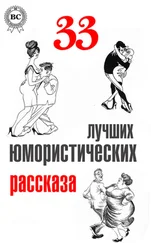The next instant the bulwarks fall down flat on the deck and the mast goes straight up into the sky and disappears, then the water reaches the powder magazine and there is a terrific explosion.
This is followed by a sound as of linen sheets being ripped up, and the passengers and crew hurry downstairs into the cabin, evidently with the idea of getting out of the way of the sea, which has climbed up and is now level with the deck.
The next moment the vessel separates in the middle and goes off R. and L. [210], so as to make room for a small boat containing the heroine, the child, the comic man, and one sailor.
The way small boats are managed at (stage) sea is even more wonderful than the way in which ships are sailed.
To begin with, everybody sits sideways along the middle of the boat, all facing the starboard. They do not attempt to row. One man does all the work with one scull. This scull he puts down through the water till it touches the bed of the ocean, and then he shoves.
“Deep-sea punting” would be the technical term for the method, we presume.
In this way do they toil – or rather, to speak correctly, does the one man toil – through the awful night, until with joy they see before them the light-house rocks.
The light-house keeper comes out with a lantern. The boat is run in among the breakers and all are saved.
And then the band plays.
THE END
stone= 14 pounds = 6,35 kg
St. Vitus’s Dance– a nervous disorder characterized by uncoordinated shaking movements
Bright’s disease– kidney diseases (acute or chronic nephritis)
housemaid’s knee– Bursitis, swelling and inflammation over the front of the knee. Commonly seen in patients who kneel for extended periods
the chargesheet– a document into which a police officer enters details of the charge against a prisoner
Referee – a weekly sporting paper
queer– giddy, faint
ad lib– from Latin ad libitum , meaning “freely, as one wishes”
Ditto– the same, likewise ( Italian )
Worcester– sauce, very spicy one, made of soya beans
leggo– let go
blarmed– cursed
sixpen’orth– sixpenceworth
ha’pence– half-pence
shilling shockers– cheap books of thrillers
Cussedness– stubborn unruliness or deliberate resistance to discipline; perversity
put upon– to take advantage of, to maltreat
slapup– great, smashing ( slang )
mouch– wandering about
Gladstone– a large travelling bag made of stiff leather named after W. E. Gladstone, British statesman (1809–1898)
slavey– a servantgirl of all work
Wasermarrer? – What’s the matter?
Bar– evidently, barometer
Boots– a hotel servant who cleans boots
Great Coram Street murder– the murder of Harriet Buswell in 1872 that caused a great sensation in the newspapers
Stanley– Henry Morton Stanley, (1841–1904), a journalist and famous traveller, explorer of Africa
King Edwy– Eadwig (Edwy) (c. 941–959), King of England from 955 until his death four years later
sack and mead– wine and a beverage made of honey ( archaic )
Elgiva– Ælgifu, the wife of King Edwy
brutal Odo and St. Dunstan– Eadwig’s short reign was marked by conflicts with the Church under the leadership of Saint Dunstan and Archbishop Odo
Gadzooks, gramercy– Gadzooks is an exclamation; a euphemistic shortening of “God’s hooks” (the nails on the cross). Gramercy – from Old French grand merci (thank you very much), expressing surprise or gratitude.
Sandford and Merton– “The History of Sandford and Merton” is a didactic children’s tale (by Thomas Day, 1783–1789). There are two main characters there – goodwilled Sanford and unpleasant Merton, who gets upright due to moral instructions.
dogdays– the hottest days of summer
under laughinggas– a method of anesthesiology at that time
old blue– 18th century English porcelain, mostly painted blue
Sarah Janes– typical housemaids
Yuise– “you is”, an illiterate form of address
Pinafore – a light opera by Gilbert and Sullivan (1878)
Trial by Jury – also a light opera by the same authors (1875)
morceaux (sing. morceau) – short literary or musical compositions ( French )
Bradshaw– George Bradshaw (1801–1853) wrote the “Railway Guide”, while John Bradshaw (1602–1659) was the head of the council that condemned King Charles I to death.
Ca ssivelaunus– British chieftain, leader of the Catuvellauni tribe that resisted Caesar’s invasion of Britain (54 bc)
willo’thewisps– phosphorescent lights floating at night on marshy ground
’Arrys and ’Arriets– evidently, “Harrys and Harriets”, pronounced in the way folk did
Lor’– Lord
ain’t– isn’t
’ere ain’t– here isn’t (illiterate English)
’ware wheat– ware = beware; wheat = corn
Angels and ministers of grace defend us– from “Hamlet” by William Shakespeare (Act 1, Scene 4)
King John– (nick-name John Lackland, 1167–1216). John faced a rebellion by many of his barons who were not satisfied with his ruling. The following story in the book refers to how King John had to sign the Magna Carta (the document limiting his powers) in 1215
Читать дальше
Конец ознакомительного отрывка
Купить книгу
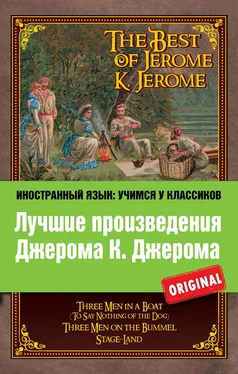
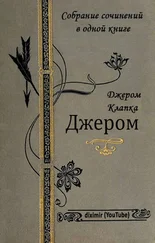





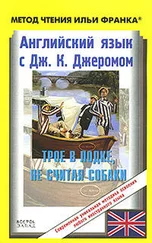
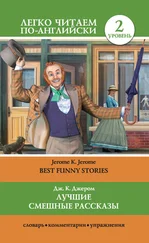
![Джером Джером - Избранные произведения в одном томе [Компиляция, сетевое издание]](/books/426293/dzherom-dzherom-izbrannye-proizvedeniya-v-odnom-tome-thumb.webp)


